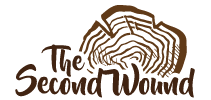If you are a survivor of abuse or any kind of trauma, there is only one authority on the subject of what you need, and that is you. This may seem like an obvious statement to some. But I have a feeling you might find these words to be a relief – or even a radical concept.
It’s easy to lose touch with the obvious when you’re living with the after-effects of trauma. The world can feel upside-down. We survivors know what it’s like to feel blamed for what happened to us. Anything from being told we brought it on ourselves to questions like “Why did you choose to be there?” or “Didn’t you fight back?”
On the phone with my mother one day, I gave her an earful of complaints about the recent behavior of the brother who had sexually abused me when we were kids. This was a recurring theme of our conversations and they never seemed to go anywhere constructive. After some back and forth that left us both frustrated, my mother sighed and asked in an exasperated voice, “What is it you want, Miranda?”
The words came tumbling out with no hesitation: “I want him to take responsibility for what he did to me.”
There was a pause. And then my mother said, “I don’t know what you mean by responsibility.”
I was floored. How could she not know? I had explained to her in every way I possibly could, over countless conversations, letters, and emails, what I needed from my brother in order to feel respected and heard instead of maligned and rejected for speaking up. I have pretty good communication skills, which made my mother’s inability to comprehend my needs even more exasperating. But at that moment, I realized it was probably pointless to keep trying.
My mother and other family members had long been making my brother’s case to me. Over the years since I first revealed the abuse, she had informed me that he had assured her he was getting help, that he deeply regretted abusing me, and that he cared about the pain he had caused me. She didn’t get that his actions told me something different. “He’s a good person,” she insisted. It pained me every time she showed me that her high opinion of her son was not dampened by the pain his behavior was still causing me.
Then one day, my therapist’s words pulled me back into the right-side-up world with one brief sentence. I had just finished tearfully describing my mother’s defense of my brother in which she argued that he WAS adequately addressing his part in my abuse. My therapist sat up in straighter in her chair and opened her eyes wide. “Aren’t YOU the only person who can decide that?” she asked.
I was honestly stunned. Her point was so logical, so obvious. Why had I never thought of it that way? At that moment, I realized how deeply I’d been affected by a lifetime of exposure to my family’s upside-down thinking. It took my therapist to set me straight.
I had become accustomed to family members advising me to be more forgiving and less vocal about my feelings, that I was too angry or focused on the past. But ever since that day, I recall my therapist’s words when I need a reality check about my family members’ attitudes versus the truth about what I know I deserve.
I deserve to be the authority on what I need, period. You do too. Never forget that.


I’ve read so much about the trauma of childhood sexual abuse and this was the most resonant article I’ve ever come across. You convey exactly what the shape of that second wound looks like in my own life.
Thank you for this, for the empathy, for making sense of a such a layered circumstance.
LikeLike
It is an honor to know that my words and my personal experiences have helped you feel understood. Thank you for reaching out to tell me what my article meant to you. I wish you continued strength and growth – sounds like you’re already on the right path.
LikeLike